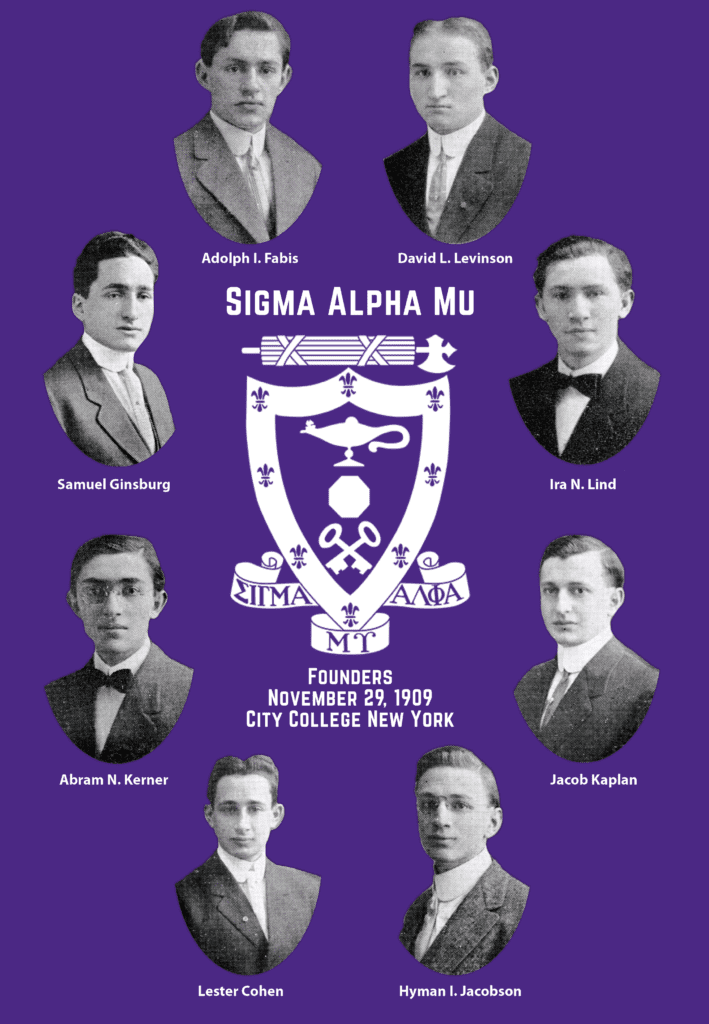In the fall of 1909, the sophomore class at the College of the City of New York had found itself embarrassed by “lowly freshmen.” At a school where “warfare” between freshman and sophomore class was a tradition, the sophomores found it necessary to regain their fallen honor. Class Marshal Lester Cole called a meeting of sophomore leaders on November 26, 1909, to decide on a plan for redemption. Eight appeared- Cole, Hyman I. Jacobson, Adolph I. Fabis, Samuel Gaines, Abram N. Kerner, Jacob Kaplan, Ira N. Lind, and David D. Levinson. These men are the Founders of Sigma Alpha Mu.
It is interesting to note that while there were many friends among the eight, none of them knew all the others. During the discussion which took place, much loftier ideals were expressed than the mere formulation of plans for asserting sophomore honor. The men discovered that they shared values and the inspiration for the formation of a new fraternity came to them. During this meeting, it was suggested that the Greek Letters “Kappa Phi Omega” be used to symbolize the words “Cosmic Fraternal Order” as the new name for the fraternity. This proposal was accepted and the meeting was adjourned.






